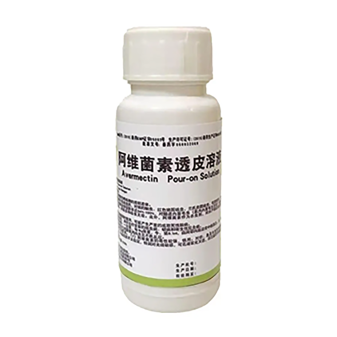- Afrikaans
- Albanian
- Amharic
- Arabic
- Armenian
- Azerbaijani
- Basque
- Belarusian
- Bengali
- Bosnian
- Bulgarian
- Catalan
- Cebuano
- Corsican
- Croatian
- Czech
- Danish
- Dutch
- English
- Esperanto
- Estonian
- Finnish
- French
- Frisian
- Galician
- Georgian
- German
- Greek
- Gujarati
- Haitian Creole
- hausa
- hawaiian
- Hebrew
- Hindi
- Miao
- Hungarian
- Icelandic
- igbo
- Indonesian
- irish
- Italian
- Japanese
- Javanese
- Kannada
- kazakh
- Khmer
- Rwandese
- Korean
- Kurdish
- Kyrgyz
- Lao
- Latin
- Latvian
- Lithuanian
- Luxembourgish
- Macedonian
- Malgashi
- Malay
- Malayalam
- Maltese
- Maori
- Marathi
- Mongolian
- Myanmar
- Nepali
- Norwegian
- Norwegian
- Occitan
- Pashto
- Persian
- Polish
- Portuguese
- Punjabi
- Romanian
- Russian
- Samoan
- Scottish Gaelic
- Serbian
- Sesotho
- Shona
- Sindhi
- Sinhala
- Slovak
- Slovenian
- Somali
- Spanish
- Sundanese
- Swahili
- Swedish
- Tagalog
- Tajik
- Tamil
- Tatar
- Telugu
- Thai
- Turkish
- Turkmen
- Ukrainian
- Urdu
- Uighur
- Uzbek
- Vietnamese
- Welsh
- Bantu
- Yiddish
- Yoruba
- Zulu
8 月 . 01, 2024 10:36 Back to list
Understanding the Uses and Applications of Tylosin Tartrate in Veterinary Medicine and Animal Health
What is Tylosin Tartrate Used For?
Tylosin tartrate is a macrolide antibiotic that has gained popularity in veterinary medicine due to its effectiveness in treating a variety of bacterial infections in animals. This compound is derived from the bacterium *Streptomyces fradiae* and is commonly used in the livestock and poultry industries. Its primary applications are focused on the treatment, prevention, and control of various diseases in animals, especially those caused by susceptible strains of bacteria.
What is Tylosin Tartrate Used For?
In addition to respiratory issues, tylosin tartrate is also utilized for its antimicrobial properties in a variety of gastrointestinal infections. It is effective against bacteria that cause conditions like enteritis, which is an inflammation of the intestinal lining. In livestock, these infections can cause severe diarrhea, weight loss, and overall poor health, significantly impacting productivity. By treating these infections promptly with tylosin tartrate, farmers can minimize the negative effects on growth rates and feed conversion ratios.
what is tylosin tartrate used for

Tylosin tartrate is also employed in the prevention of necrotic enteritis in poultry. This condition, often caused by an overgrowth of *Clostridium perfringens*, can result in high mortality rates if not managed correctly. Regular usage of tylosin tartrate in feed can help control the bacterial population in the gut, promoting better intestinal health and overall performance in poultry flocks.
Moreover, tylosin tartrate has applications beyond the livestock industry. It is sometimes used in companion animals, particularly dogs and cats, for treating specific infections, especially those related to the respiratory and gastrointestinal tracts. The versatility of tylosin tartrate makes it a valuable antibiotic in both large-scale animal husbandry and smaller veterinary practices.
While tylosin tartrate plays a crucial role in treating bacterial infections, it is essential to use it judiciously to prevent the development of antibiotic resistance. Overuse or inappropriate use of antibiotics can lead to resistant strains of bacteria, posing a risk not only to animal health but also to public health, as some antibiotic-resistant bacteria can be transmitted to humans. Therefore, veterinarians and farmers must adhere to guidelines and best practices regarding antibiotic use, ensuring that tylosin tartrate is administered when necessary and within recommended dosages.
In conclusion, tylosin tartrate is an essential tool in veterinary medicine, particularly within the livestock and poultry sectors. Its effectiveness in treating respiratory and gastrointestinal infections helps maintain animal health, improve productivity, and support the economic viability of agricultural operations. As with any medication, responsible use is crucial to ensure its efficacy and safety for both animals and humans, thereby contributing positively to animal husbandry and public health outcomes.
-
The Power of Radix Isatidis Extract for Your Health and Wellness
NewsOct.29,2024
-
Neomycin Sulfate Soluble Powder: A Versatile Solution for Pet Health
NewsOct.29,2024
-
Lincomycin Hydrochloride Soluble Powder – The Essential Solution
NewsOct.29,2024
-
Garamycin Gentamicin Sulfate for Effective Infection Control
NewsOct.29,2024
-
Doxycycline Hyclate Soluble Powder: Your Antibiotic Needs
NewsOct.29,2024
-
Tilmicosin Premix: The Ultimate Solution for Poultry Health
NewsOct.29,2024













